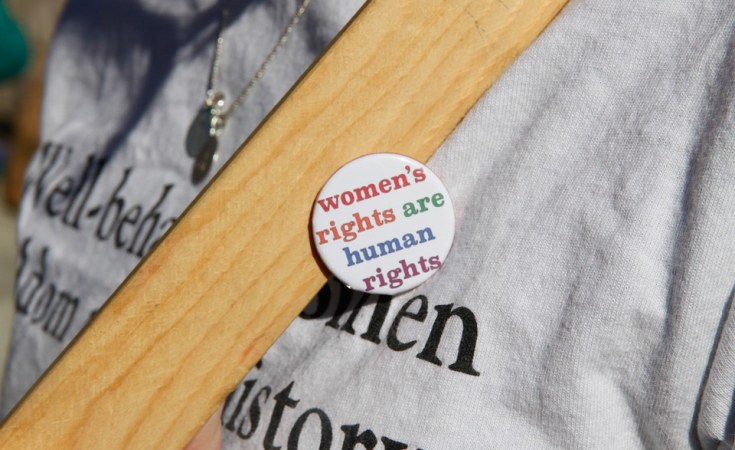Joint Civil Society Organizations Press Statement
Civil society and human rights organisations are deeply appalled by recent indications that many members of the Parliament of Somalia are inclined to pass the Sexual Intercourse Bill over the historic Sexual Offences Bill (SOB) that was adopted by the Council of Ministers in May 2018. With so many members showing preference for the Sexual Intercourse Bill, we feel it is paramount to mobilize support for the Sexual Offenses Bill before it is too late.
The Sexual Intercourse Bill is profoundly flawed and violates many women and girls' inherent human rights by normalizing violence against them. The Sexual Offences Bill, on the other hand, makes great strides toward protecting Somali women and girls from violence by criminalizing different forms of sexual violence in accordance with internationally accepted standards.
Key concerns
Women and girls in Somalia are subject to multiple manifestations of gender-based Violence (GBV). Among the most predominant forms of violence are the increased and relentless attacks on their bodily autonomy in social, cultural, religious, or political spheres.
This violence usually takes different forms, including gang rape, sexual exploitation, child marriage, forced pregnancies, intimate partner violence and a host of other horrific misdeeds designed to humiliate women and girls and erode their power over their own bodies.
A recent GBV Advocacy Brief published by UNFPA Somalia revealed that incidences of sexual violence have continued to increase, exacerbated by multiple displacements, flooding, droughts and armed conflicts.
Despite the higher prevalence, survivors largely remain in legal limbo, mostly due to fragile security in camps for internally displaced persons (IDPs), weak legal systems, and limited access to formal justice.
When fighting against such injustices, women parliamentarians' and other actors' voices often go unheard and their contributions are sidelined. For example, while speaking in favor of the Sexual Offences Bill, the comments of Hon. Sadia Samatar, the Deputy Speaker of Parliament were misconstrued and weaponized against her to prevent her from continuing to fight for the protection of Somali women and girls, even though her arguments for the safety and dignity of women and girls are fully aligned with Islamic teachings.
Consequently, we are joining together to condemn the violence that is oppressing Somali women and girls and to stand in solidarity with those who are courageous enough to try to protect them.
We support the passing of the Sexual Offenses Bill which provides key protections to Somali women and girls from sexual violence and exploitation.
Among the key regressive provisions in Sexual Intercourse Bill is the legalization of child marriages, omission of age of consent, omission of the offence of sexual exploitation, significant reductions in types of admissible evidence, and changes in the definition of rape.
Other regressive provisions include: removal of provisions setting out responsibilities and obligations of various criminal justice institutions to enforce the law, reductions in privacy rights of the survivors by allowing the introduction of their sexual history to evidence during trial, and reduction of situations where a person's consent can be violated or invalidated.
The above substantive changes will not only be a backward step in as far as the advancement of women and girls' rights in Somalia is concerned, but also a detriment to their access to justice. Additionally, there will be a boost in the nation's surge in child forced marriages.
Recommendations
As such, we as NAGAAD Network, Women's Rights Advancements and Protection Alternative (WRAPA), Voice of Somali Minority Women Organization (VOSOMWO), Puntland Women Peace and Security, (PUWPS), Puntland Women Lawyers Association (PUWLA), Youth Employment Solutions Organization (YESO) and the Strategic Initiative for Women in the Horn of Africa (SIHA) appeal to Government of Somalia through the Parliament to:
1. Immediately approve the Sexual Offences Bill since it was an outcome of a 5-year consultation process with key stakeholders such as women and human rights organisations, religious and cultural leaders, including individuals affected by sexual violence.
2. Enhance the security sector's zero tolerance stance and contribute to the strengthening of government institutional ability to effectively prevent and respond to sexual violence.
3. Take tangible steps to prevent sexual violence against women and children, including adopting a new national action plan that will put an end to gender-based and sexual violence.
4. Cease from labelling female parliamentarians and rights campaigners as disbelievers when discussing the women's human rights agenda in Parliament.
5. Follow the example of Muslim nations such as Djibouti and Indonesia, that have enacted all-inclusive SOBs to combat sexual offenses. *We received feedback that in a previous version of this statement, due to a lack of clarity in the first paragraph, it seemed to indicate that the SIB had been passed into law by Parliament - this is not the case. We have added further detail to show that our concern is simply the growing support for the SIB in Parliament, contributing to our worries that a vote in favor may be impending.
Signatories:
1. NAGAAD Network
2. Somali Women's Rights Advancements and Protection Alternative (SWRAPA)
3. Voice of Somali Minority Women Organization (VOSOMWO)
4. Puntland Women Peace and Security (PUWPS)
5. Puntland Women lawyers' Association (PUWLA)
6. Youth Employment Solutions Organizations (YESO)
7. Strategic Initiative for Women in the Horn of Africa (SIHA Network)


